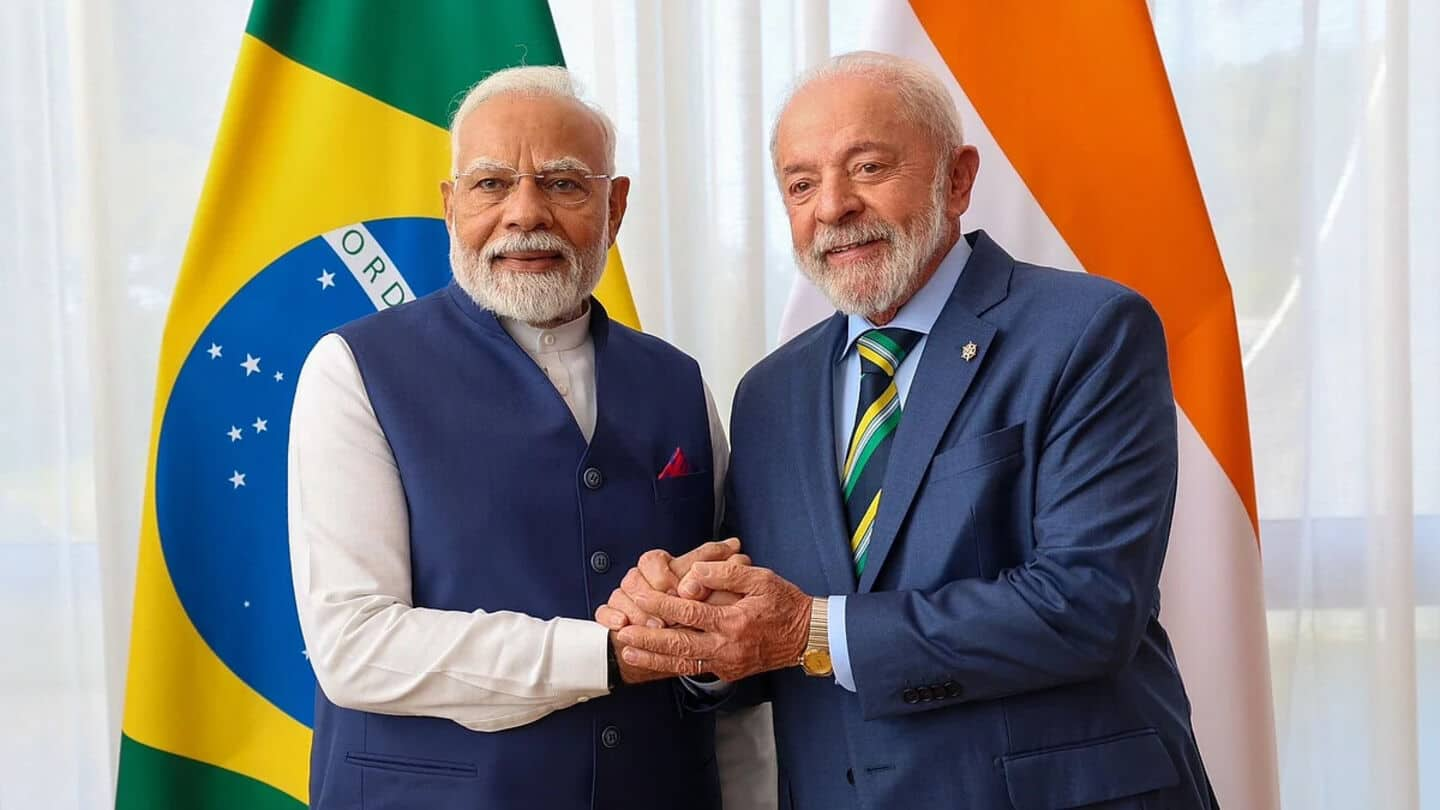
India, Brazil ink 6 pacts during Modi's historic state visit
What's the story
Prime Minister Narendra Modi and Brazilian President Luiz Inacio Lula da Silva signed six agreements during a bilateral meeting in the capital city of Brasilia on Tuesday. The agreements include cooperation on international terrorism and transnational crime. After the meeting with Silva, PM Modi reiterated India's "zero tolerance" policy on terrorism, saying there is "no place for dohre maapdand (double standards) on this issue." He stressed that both countries oppose terrorists and their supporters.
Bilateral agreements
India, Brazil signed agreements in renewable energy, digital solutions
Apart from the anti-terrorism pact, India and Brazil also signed agreements in renewable energy, digital solutions, intellectual property rights, and the exchange of classified information. PM Modi announced a target of $20 billion for bilateral trade and emphasized defense cooperation between the two nations. He said they were looking at interlinking their defense industries as a sign of growing trust.
Historic visit
Historic state visit
PM Modi's visit to Brazil is historic, as he is the first Indian prime minister in 57 years to undertake a state visit. The visit comes after the BRICS Summit in Rio de Janeiro, held from July 6 to 7. At the Alvorada Palace, PM Modi and President Lula da Silva exchanged warm diplomatic courtesies and introduced delegates from both countries. A grand ceremonial welcome included a 114-horse guard of honor and cultural performances by the Batala Mundo band.
Diplomatic outreach
India's proactive role in the Global South
PM Modi's participation in the BRICS Summit and the state visit to Brazil are part of his long, five-nation tour. After concluding his engagements in Brazil, he will head to Namibia on July 9, addressing the Namibian Parliament. According to a statement from the Ministry of External Affairs, one of the key highlights of the visit will be the signing of a technology agreement allowing for unified payment interoperability between the two countries.